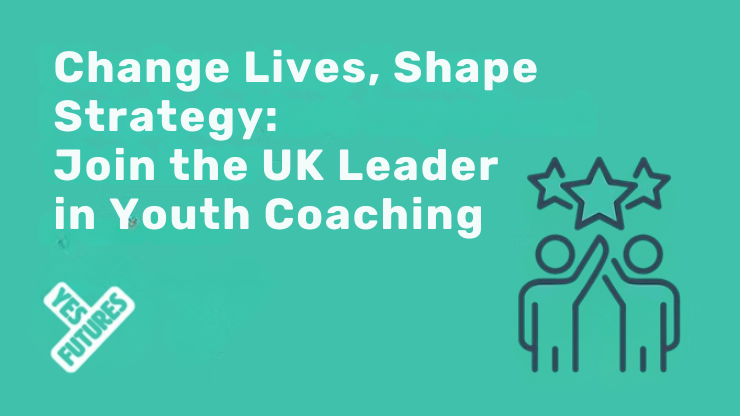Listen Like a Trampoline: The Art of Attentive Listening to Amplify Young Voices
- Yes Futures
.png/v1/fill/w_320,h_320/file.jpg)
- Apr 16, 2024
- 3 min read
Updated: May 1, 2024
Written by Melanie Taylor
As a qualified life coach, Melanie managed and mentored apprentices and graduates throughout her 25-year corporate career. She is passionate about helping young people fulfil their potential. Proving you are never too old to change direction and set new goals, she recently retrained as a garden designer, set up Hazelwood Plantscapes and enjoyed creating her first show garden at the Belvoir Castle Flower and Garden Show in 2023.

For coaches, listening is a vitally important skill in our toolkit. But how often do we really use these skills to best effect to encourage and empower the young people we are coaching?
Much has been written about active listening - nodding affirmatively, watching non-verbal cues, and summing up, but a 2016 study in the Harvard Business Review by Jack Zenger and Joseph Folkman most resonates with me. Using data from 3,492 participants of a management coaching programme, they identified what makes an effective listener.
The article highlights the importance of attentive listening, providing constructive feedback and interjecting with discovery questions that gently probe previously held assumptions. In bouncing off ideas, we can amplify young people’s voices, so they feel truly heard. A two-way, collaborative dialogue adds energy and acceleration to their ideas so that they rebound and build on them, fostering their self-esteem and facilitating the search for additional solutions within themselves.
I was so impressed with the progress and personal growth of the Passmores Academy pupils I coached last year. Each of my coachees joined the programme with a sense of trepidation, but by focusing on psychological safety we created a trusting relationship, resulting in each of them becoming more self-aware, resilient, and able to forge their own strategies.
Asking about their extra-curricular activities helped them see that some of their behaviours, attitudes, and experiences at sporting or after-school clubs, related to the issues they were talking to me about. The discipline and mindset shown in these activities demonstrated an intrinsic motivation that could equally apply to other areas of their life like studying for their exams or socialising.
Light but insightful questioning helped the students to discover other avenues to gain skills and confidence like work experience, workshops, or even just making an effort to talk to more people at a party. Slightly pushing them out of their comfort zone, made them proud to achieve something they’d initially ruled impossible, but were already equipped to deal with.
The Yes Futures talents scorecard and goal-setting tools were very useful in defining small steps and ‘quick wins’ they could take to achieve their dreams and aspirations. Working through different approaches, we broke these goals into measurable and time-bound actions, instilling a sense of pride and celebration for each success on their journey of self-discovery.
Empathy can’t be overstated, to truly understand their perspectives, and encourage young people to feel comfortable in their own skin, so that they don’t feel the need to constantly compare themselves to others. Inspire them to simply try to be a better version of themselves every day, and to bring their best self to every situation. Listen like a trampoline and amplify their voices. Support them to discover their unique talents, skills, and attributes so that they can increase their self-belief, create a positive future for themselves, and make a difference to the world and people around them.
For more information on our programmes and to find out how we could support your students, please visit our Programmes page.

.png)


